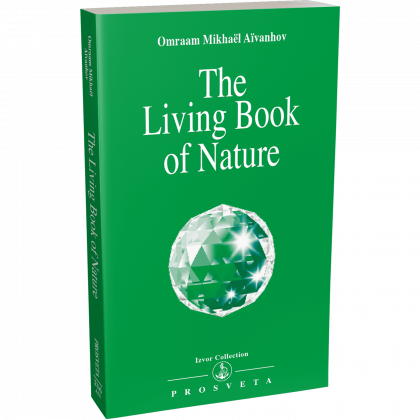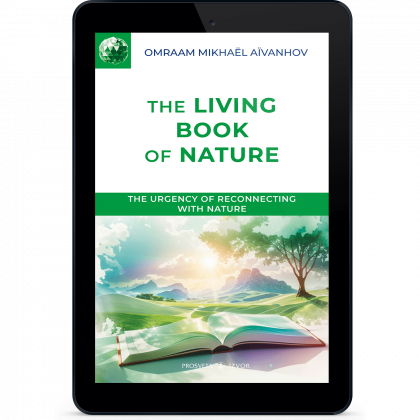Learn to read and write again
The language of nature is the only one worth knowing
'Human beings learn to read and write in all the languages of the world, except the language of Nature. And yet it is the only one worth knowing.
The capacity to read and write has many advantages, no doubt, but the tremendous importance given to pieces of paper has many disadvantages also. We are living in a civilization that requires that we know how to read and write. That is all well and good, but what I want to make abundantly clear to you is that there are other kinds of reading and writing. It will always be necessary to know how to read and write, but you have to be able to do so on different levels. For an initiate, to read means to be able to decipher the subtle, secret dimensions of objects and of all living creatures, to interpret the signs and symbols traced by cosmic Intelligence on every page of the great Book of the Universe. And to write is to put one’s mark on that book, to act upon minerals and plants, animals and men, by the magic power of one’s spirit.
So it is not only on paper that we have to learn to read and write, but in all regions of the universe.
Humans are incapable of reading the great Book of Nature and finding the solutions to their problems in it. They readily consult books by famous authors in which they find all kinds of contradictory answers to their questions, but never do they consult Nature herself, who solved all life’s problems aeons ago. Yes, the solutions to your problems are all there, in the mineral, vegetable and animal worlds and even in man himself, in the way he is built and in the different functions of his body.
Human beings cannot read, and neither can they write. Oh, of course, they do write because every thought and every feeling is a manner of writing and it is all recorded somewhere, on material objects or in the minds and hearts of men and women. But this is just scribbling and it serves no useful purpose for anyone.
Writing is an act of the will and it requires sacrifice. To write is to awaken and harness inner forces and to express them outwardly in the act of giving them to another human being. To write is also to leave traces of oneself and many philosophers and artists have left traces which are still being studied today, thousands of years after they have gone. But on a much higher level than artists and philosophers are the great initiates, veritable creators who work with the forces of divine magic. He who knows how to work with divine magic has only to trace a few words in space, in letters of fire, and his words speed through the air, etching themselves into the minds and hearts of men and women everywhere.'
'Human beings learn to read and write in all the languages of the world, except the language of Nature. And yet it is the only one worth knowing.
The capacity to read and write has many advantages, no doubt, but the tremendous importance given to pieces of paper has many disadvantages also. We are living in a civilization that requires that we know how to read and write. That is all well and good, but what I want to make abundantly clear to you is that there are other kinds of reading and writing. It will always be necessary to know how to read and write, but you have to be able to do so on different levels. For an initiate, to read means to be able to decipher the subtle, secret dimensions of objects and of all living creatures, to interpret the signs and symbols traced by cosmic Intelligence on every page of the great Book of the Universe.
And to write is to put one’s mark on that book, to act upon minerals and plants, animals and men, by the magic power of one’s spirit.
So it is not only on paper that we have to learn to read and write, but in all regions of the universe.
Humans are incapable of reading the great Book of Nature and finding the solutions to their problems in it. They readily consult books by famous authors in which they find all kinds of contradictory answers to their questions, but never do they consult Nature herself, who solved all life’s problems aeons ago. Yes, the solutions to your problems are all there, in the mineral, vegetable and animal worlds and even in man himself, in the way he is built and in the different functions of his body.
Human beings cannot read, and neither can they write. Oh, of course, they do write because every thought and every feeling is a manner of writing and it is all recorded somewhere, on material objects or in the minds and hearts of men and women. But this is just scribbling and it serves no useful purpose for anyone.
Writing is an act of the will and it requires sacrifice. To write is to awaken and harness inner forces and to express them outwardly in the act of giving them to another human being. To write is also to leave traces of oneself and many philosophers and artists have left traces which are still being studied today, thousands of years after they have gone. But on a much higher level than artists and philosophers are the great initiates, veritable creators who work with the forces of divine magic. He who knows how to work with divine magic has only to trace a few words in space, in letters of fire, and his words speed through the air, etching themselves into the minds and hearts of men and women everywhere.'
Text taken from the book "The Living Book of Nature", chap. 12 "Learning to Read and Write".




